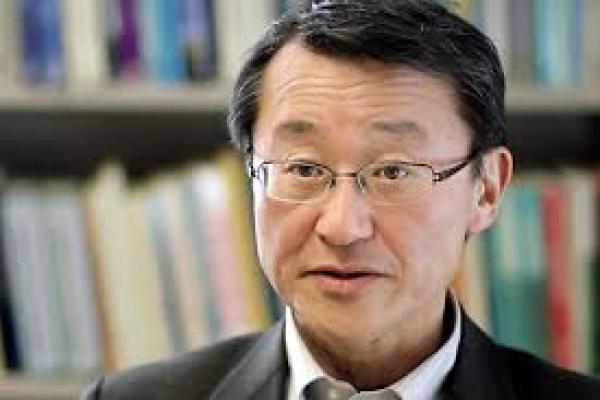
The Institute for Japanese Studies presents
"The Syntax of Participants"
Shigeru Miyagawa, Professor
Department of Linguistics and Philosophy
MIT
Flyer: ![]()
![]() Shigeru Miyagawa Linguistics Flyer.pdf
Shigeru Miyagawa Linguistics Flyer.pdf
Abstract: We formulate an attempt to understand what we call the Syntax of Participants (SOP). SOP is concerned with a variety of linguistic phenomena that occur at the interface of syntax and pragmatics: sentential particles, allocutive agreement that marks politeness, interjections, and so forth. These share the trait of referencing either the speaker or the hearer, or both. For example, the allocutive agreement that marks politeness in certain Basque dialects agrees with the hearer, thus it is always 2nd person, despite the fact that there is no 2nd person entity in any of the argument positions (Oyharçabal 1993). The allocutive is a regular form of agreement, hence it must enter into a probe-goal relation. Using a modern version of Ross’s Performative Analysis proposed by Speas and Tenny (2003) and Haegeman and Hill (2011), we show that the goal of the allocutive is the representation of the Hearer in Ross’s performative structure and what Speas and Tenny more recently call the Speech Act Phrase (SAP). I argue that the politeness marking -des-/-mas- in Japanese is a form of allocutive agreement (Miyagawa 2012, in press). Cross linguistically SOP phenomena are highly restricted in distribution, being available only in root clauses. We explore the idea that in fact their distribution reflects Emonds’s original conception of the Root: the highest S in a tree, an S immediately dominated by the highest S or the reported S in direct discourse. If this is correct, what Emonds (1969) identified was the distribution of the Speech Act Phrase.
*This presentation is part of a joint plenary presented with Liliane Haegeman at the 39th GLOW. The material for this presentation is drawn from Miyagawa (2012, in press).
Miyagawa, S. In press. Agreement Beyond Phi. Linguistic Inquiry Monograph, MIT Press.
Bio: Shigeru Miyagawa has been at MIT since 1991, where he is Professor of Linguistics and Kochi-Manjiro Professor of Japanese Language and Culture. He works on syntax, morphology, and Altaic and East Asian linguistics. He has recently been exploring the idea that grammatical agreement, broadly conceived, is universally present in human language. He is the author of Agreement Beyond Phi (to appear, Linguistic Inquiry Monograph, MIT Press), Case, Argument Structure, and Word Order, Leading Linguists Series (Routledge, 2012), Why Agree? Why Move?, Linguistic Inquiry Monograph by MIT Press (2010), and co-editor with Mamoru Saito of Oxford Handbook of Japanese Linguistics published by the Oxford University Press (2008), along with over sixty articles on various linguistics topics.
He received his B.A. from the International Christian University in 1975 and his Ph.D. from the University of Arizona in 1980. Prior to his MIT appointment, he was Assistant Professor, Associate Professor, Professor, and also the Chair (1988-1991) of the Department of East Asian Languages and Literatures at The Ohio State University.
This event is sponsored in part by the Department of East Asian Languages and Literatures and a U.S. Department of Education Title VI grant to The Ohio State University East Asian Studies Center.
